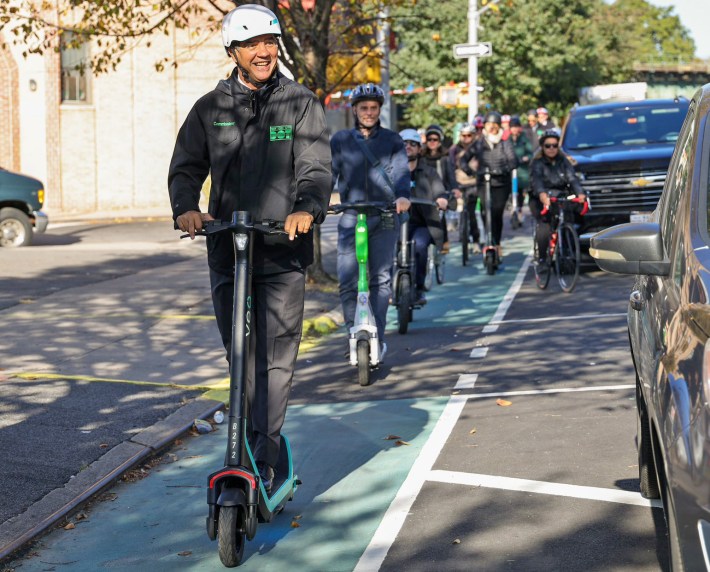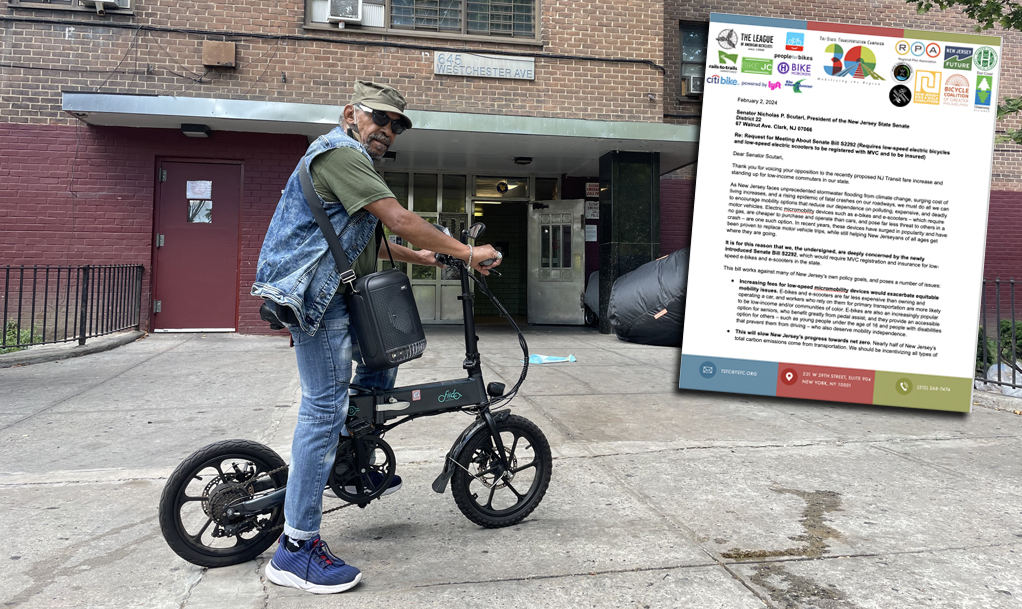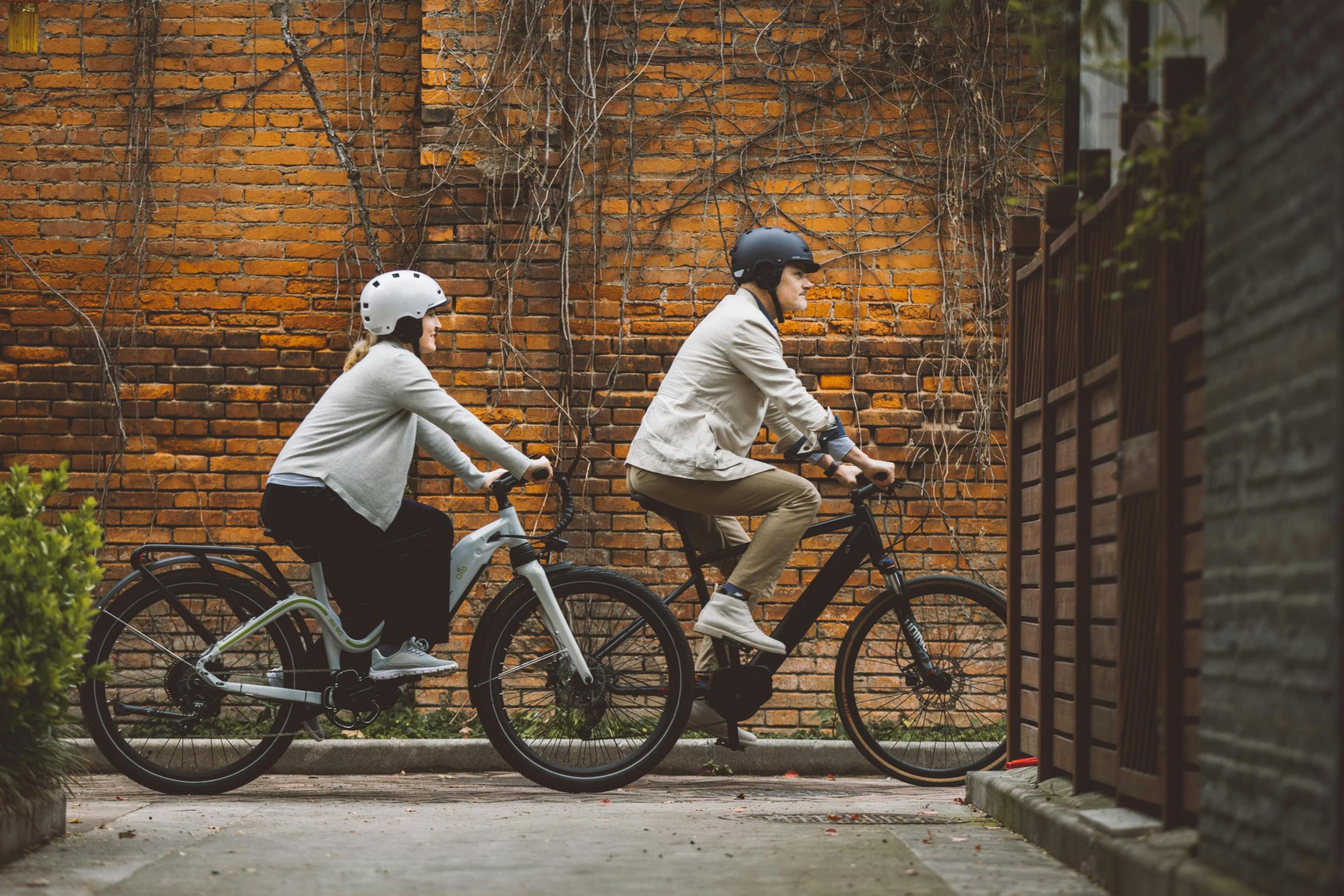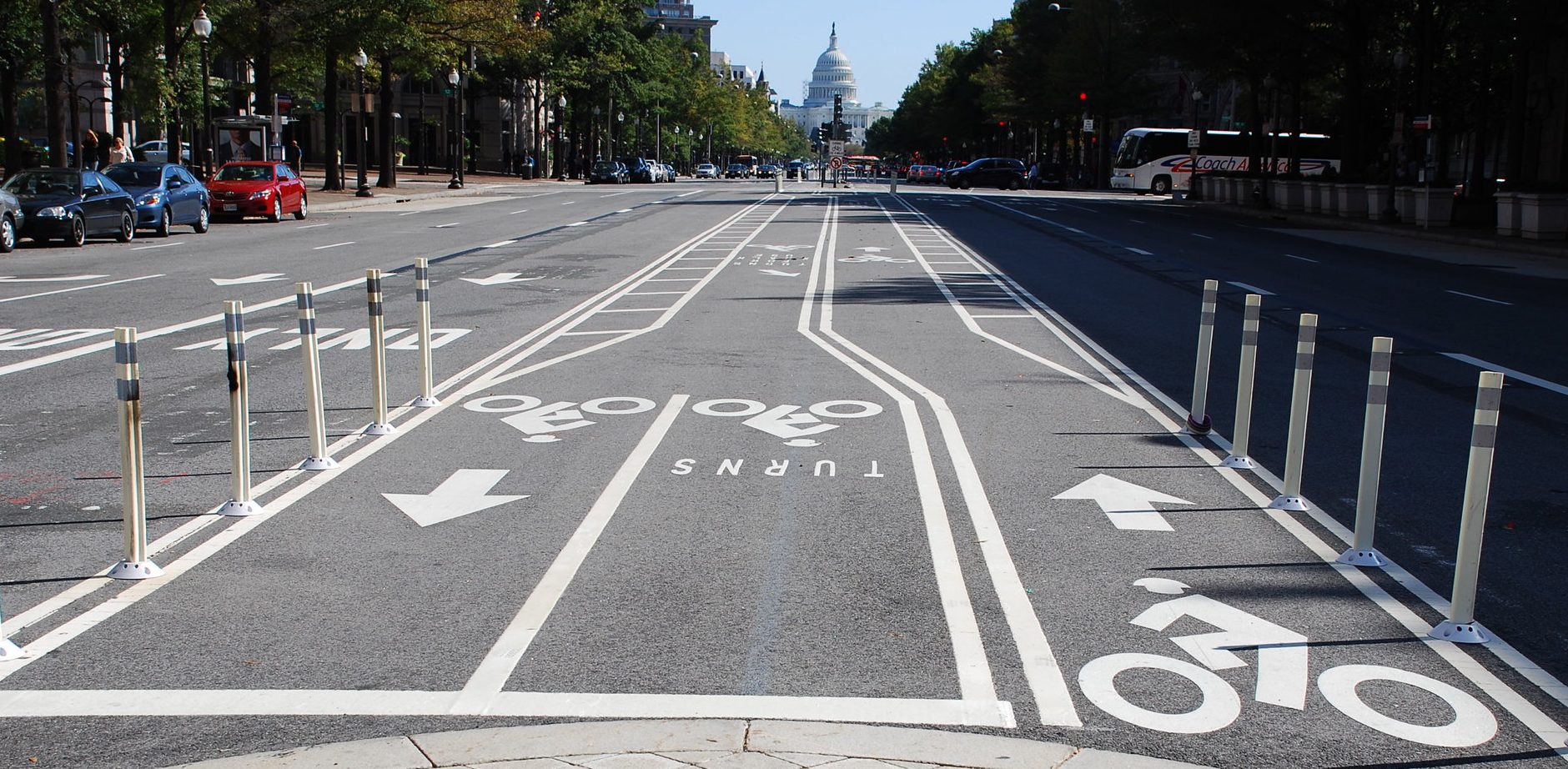A New Jersey bill to require micromobility users to carry a form of liability insurance that doesn't even exist yet will be the first step down a "slippery slope" of onerous requirements that will have devastating consequences even for exclusively human-powered modes, advocates say.
On Thursday, the New Jersey Senate's Transportation Committee is holding a hearing about bill S2292, which would require riders of low-speed electric bikes and scooters to register their vehicles with the state and carry liability insurance to cover themselves and anyone else who might be harmed in the event of a crash.
The bill is sponsored by the Senate president, Nicolas Scutari, and is expected to pass.
Serious crashes involving those modes are so relatively rare, though — the National Transportation Safety Board recorded just 119 e-bike-involved fatalities between 2017 and 2021 vs. the 192,709 caused by drivers — that advocates say the legislation would do little more than increase already-steep barriers to human-scaled mobility posed by traffic violence, while undermining the climate, equity, and safety goals that low-speed modes can help communities reach.
"The whole system of automobile insurance was built up to address what we now refer to as traffic violence caused by the drivers of motor vehicles," said Matt Moore, general policy counsel for PeopleforBikes, which joined dozens of groups in signing a letter in opposition to the bill. "It's just really unfair to require registration and insurance for small electric personal mobility devices that don't not cause anywhere near that degree of damage."
While other states offer e-bike incentives, New Jersey's E-bike/scooter insurance and registration bill will hit the most vulnerable the hardest. https://t.co/yF0J8nsJ1k
— Bicycle Coalition of Greater Philadelphia (@bcgp) February 9, 2024
New Jersey isn't the only U.S. community to consider putting up more legal roadblocks for e-riders; California is considering a bill that would require them to carry a driver's license or a state-issued ID with a license waiver, and New York City has a widely criticized bill that would require e-bikers to secure licenses and a new kind of plate that, again, doesn't exist yet.
The Garden State itself already requires licenses and registration for the owners of Class 3 e-bikes, which can go up to 28 miles an hour, but the coalition says the state "has struggled to implement and enforce this rule" because there's simply "no process" to do it. Meanwhile, Class 1 and 2 bikes, which are the focus of the new bill, are both capped at 20 mph, as are most e-kick-scooters, which would also be impacted, though studies show that none of these modes routinely hit their top speeds on shared-used facilities.
The idea of requiring even the slowest e-bikers to carry dedicated, mode-specific insurance, though, is so new that Moore says he's only aware of one provider who even offers such a policy — and it only does so in Oregon, Texas, and Washington, not New Jersey. Meanwhile, Moore says those policies are "based on motorcycles," despite the fact that per-mile motorcycle fatality rates are 24 times higher than cars and e-bike deaths are so rare that statisticians struggle to analyze them.
"The number of e-bike crashes is just so small compared to the millions of car crashes per year … [that] there really isn’t any good information for an actuary to come up with how much a premium should cost," added Moore.
Interestingly, if everyone in NJ had an e-bike for trips under 3 miles, the costs of car insurance would plummet. (Yes, we’d need bike lanes)
— Phil NYC (@PhilWalkable) February 14, 2024
That same insurance provider that wrote that problematic policy, Progressive, is also the plaintiff in a lawsuit that's currently before the New Jersey Supreme Court — and which Moore says likely inspired the state's troubling new bill.
Progressive is being sued for denying a claim for personal injury protection from its policyholder David Goyco, after a driver struck him while riding his Segway e-scooter in 2021. Goyco claimed Progressive should have covered him under his auto policy regardless of who caused the collision under New Jersey's no-fault law; two separate courts have ruled, though, that because he was neither legally a driver nor a pedestrian at the time he was injured, Progressive doesn't owe him anything.

Many U.S. communities legally include low-speed e-cyclists under the umbrella of the term "pedestrian" — along with pedal-bikers, power and manual wheelchair users, and other road users unlikely to cause harm to others — but New Jersey is among the states that defines "pedestrians" more strictly, specifically as "any person who is not occupying, entering, or alighting from a motor vehicle propelled by other than muscular power and designed primarily for use on highways, rails and tracks." (Emphasis ours.)
The European Union, meanwhile, came to the opposite conclusion when its Court of Justice ruled in October that because "e-bikes are not propelled exclusively by mechanical power they are not covered by the obligation to be insured in the same way as motor vehicles." (Emphasis ours again.)
Instead of simply updating outdated "pedestrian" definitions to include things like low-speed e-bikes, though, the New Jersey bill would instead require the insurance industry to invent a brand new product just for modes that fall into a legal gray area, rather than granting riders coverage under their auto, homeowner's, renter's, or healthcare policies, like legally recognized "pedestrians" enjoy now.
If New Jersey insists on stripping micromobility users of the protections afforded to other people outside cars and motorcycles, Moore warns that the costs to riders and their communities will be far more significant than premiums alone.
Besides the obvious downsides of discouraging the use of e-bikes — which more than 100 U.S. communities are actively subsidizing because of their safety, climate, and mobility equity benefits — an e-bike insurance requirement would create a whole new pretext for police to stop riders, a burden which has historically fallen on communities of color and unhoused people and can all too easily escalate to harassment, violence, and arrest. Insurance requirements would also jack up the costs of e-bike and scooter share, and complicate the commutes of anyone riding between New Jersey and nearby New York City.
Perhaps most troublingly, Moore fears that because pedal bikes are actually ridden faster on average than e-bikes because they attract more fit and athletic riders, New Jersey might someday argue that riders who don't use pedal-assist should carry insurance, too — and other communities could all too easily follow suit.
"If e-bikes and e-scooters are required to be registered and insured, I think we’d see a push to do the same thing for pedal bikes," Moore stresses. "I think insurance companies would be happy to have a new product to sell."
Moore acknowledges that there's one good reason for policymakers to think about insurance for e-bike riders and their ilk — and that's supplying better financial protection for pedestrians that micromobility users might strike. He debates the notion, though, that imposing new policy requirements on riders is really the answer, rather than solidifying protections they should already have under their auto, home, and health policies.
And that's before we even talk about how terrible any of those policies are at truly compensating the victims of traffic violence or their survivors — even if everyone on the road is insured, which they aren't.
"The idea that having insurance will protect me in case of severe injuries is really misplaced," Moore adds. "[Liability insurance] really only covers most claims for minor injuries and basic wage loss; that’s all it’s designed to do. In the case of severe injury or a fatality, your only real insurance is the hope that the person responsible is wealthy enough [to mount a civil lawsuit against], or has some other liability insurance to cover you. ... If there needs to be a debate on how to cover people using e-mobility devices, let’s have a debate about it, not pass a bill that jumps to conclusions."
The NJ Senate Transportation Committee is meeting on Feb. 15 at 10:30 a.m., Committee Room 10, third floor, State House Annex, Trenton, N.J. Click here for info.






